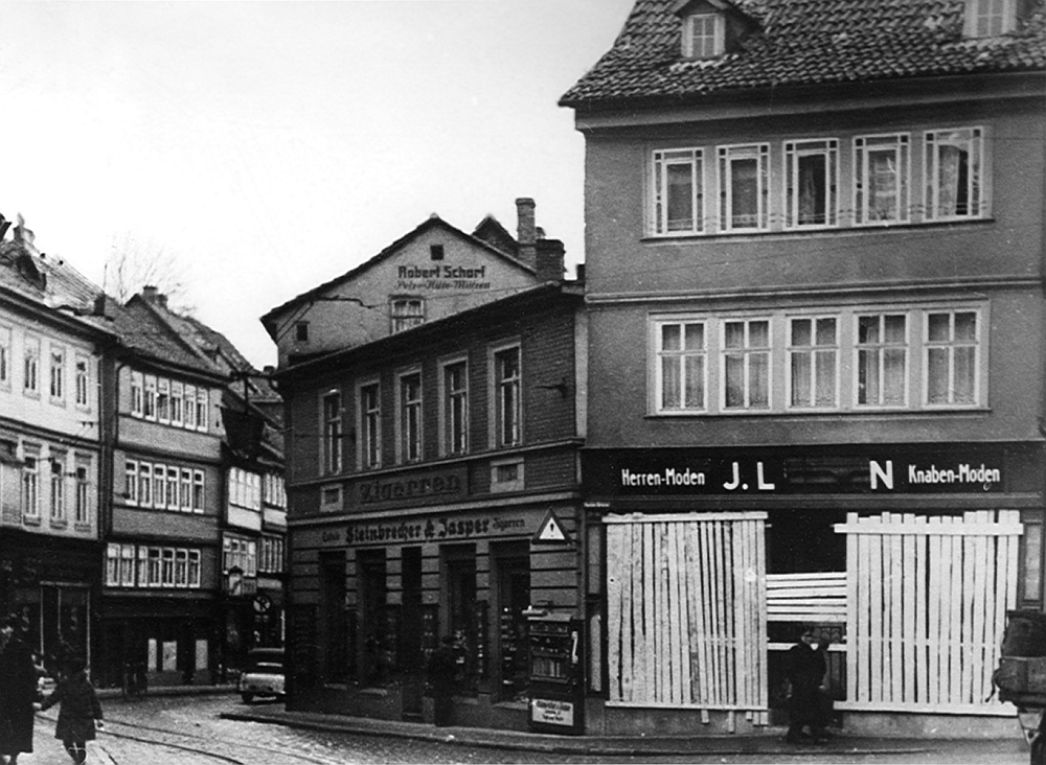
Hermann Hecht was one of the many respected Jewish business people in Nordhausen. After the
Hermann Hecht was born on 15 November 1898 in Nordhausen. He had served as a soldier in the First World War and was awarded the Iron Cross 1st and 2nd Class. Hermann Hecht lived with his wife Gertrud and his daughter Ilse at Bäckerstraße 2, where he ran a furniture and antiques shop.
During the November pogrom on 9/10 November 1938, members of the SS and SA drove the Jewish Hecht family into the
After being released from the Buchenwald concentration camp in December 1938, Hermann Hecht made immediate arrangements for his family's emigration. The parents first tried to bring their 16-year-old daughter Ilse to a safe place. She was on board of the emigrant ship "St. Louis", which left the port of Hamburg in May 1939 bound for Havana. As the Cuban immigration authorities did not allow the Jewish passengers to disembark in Cuba, the ship had to return to Europe and eventually ended up in Antwerp. After her arrest and deportation, she was murdered in Auschwitz on 29 November 1943.
In April 1939, Hermann Hecht was forced to sell his house and property to Nordhausen businessman Willi Herbst for well below their value as part of the so-called aryanisation process. In the months that followed, Hermann and Gertrud Hecht were unable to find a way to get out of Germany in time. From then on, they lived with the humiliating regulations to which Jews were subjected in Germany. On 20 September 1942, they were deported from Nordhausen via Weimar, Halle and Leipzig to Theresienstadt. From here, the SS deported the couple to Auschwitz in October 1944, where Gertrud and Hermann Hecht were murdered.
